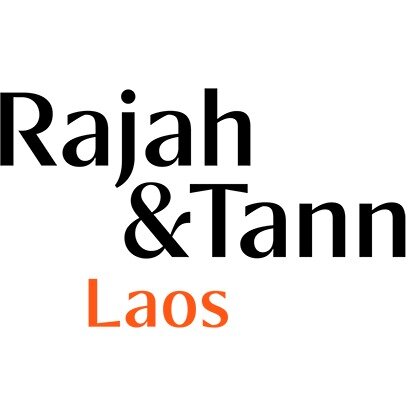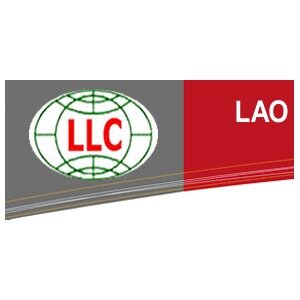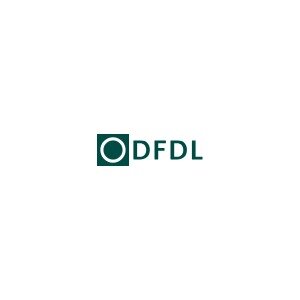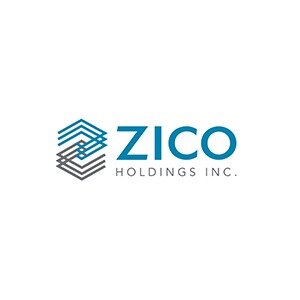Best Renewable & Alternative Energy Lawyers in Vientiane
Share your needs with us, get contacted by law firms.
Free. Takes 2 min.
List of the best lawyers in Vientiane, Laos
About Renewable & Alternative Energy Law in Vientiane, Laos
Vientiane, as the capital of Laos, stands at the forefront of renewable and alternative energy initiatives in the country. Laos is known for its abundant hydropower resources, but there is increasing interest in solar, wind, and biomass energy due to the country's focus on environmental sustainability and economic development. Renewable and alternative energy law in Vientiane encompasses regulations for project development, environmental protection, investment, land use, and intellectual property related to green technologies. The legal landscape aims to attract investment while safeguarding community interests and natural resources.
Why You May Need a Lawyer
Navigating the legal complexities associated with renewable and alternative energy in Vientiane often requires specialized expertise. You might need a lawyer if you are:
- Establishing or investing in a renewable energy project (such as solar parks or biomass plants)
- Negotiating contracts for the sale or distribution of renewable energy
- Securing land rights or leases for renewable energy infrastructure
- Applying for permits, licenses, or regulatory approval from authorities
- Ensuring compliance with environmental protection standards and requirements
- Dealing with disputes or litigation involving project partners, contractors, or local communities
- Seeking guidance on tax incentives or government subsidies for clean energy
- Protecting intellectual property related to renewable technologies
Local Laws Overview
Laos has enacted several laws and regulations to govern the development and operation of renewable energy projects, many of which are administered by authorities in Vientiane. Key legal aspects include:
- Investment Promotion Law: This law provides the legal basis for both foreign and local investment in renewable energy, offering incentives such as tax breaks and streamlined permit processes.
- Electricity Law: Specifies requirements for energy generation, grid connection, and licensing, including provisions specific to renewable sources.
- Environmental Protection Law: Mandates environmental impact assessments (EIAs) for new energy projects and compliance with environmental standards.
- Land Law: Regulates land use, leases, and property rights crucial for constructing energy facilities.
- Power Purchase Agreements (PPAs): Government-approved contracts for the sale of electricity generated from renewable sources.
Government policies and ministerial regulations further define technical standards, licensing procedures, and the acceptable use of energy resources, with oversight by the Ministry of Energy and Mines and other regulatory agencies.
Frequently Asked Questions
What kinds of renewable energy projects are common in Vientiane?
Hydropower is most prevalent in Laos, but solar farms, biomass, and biogas projects are increasingly established in and around Vientiane.
Are foreign investors allowed to own renewable energy projects in Vientiane?
Yes, foreign investment is permitted and encouraged, subject to approval by relevant authorities and compliance with investment and sector-specific regulations.
Do renewable energy projects in Vientiane require environmental permits?
Yes, projects must undergo an environmental impact assessment and secure environmental permits before being approved and constructed.
Is land ownership necessary, or can land be leased for energy projects?
Land can be leased from the government or private owners for renewable energy projects, provided the lease agreement meets legal requirements under land law.
Are there government incentives for developing renewable energy?
Yes, the government provides incentives such as tax holidays, duty exemptions, and longer lease terms under the Investment Promotion Law.
What legal agreements are needed for renewable energy generation and sale?
Power Purchase Agreements (PPAs) are critical and must be negotiated with the state utility or other authorized buyers, subject to government approval.
How can communities be involved in renewable energy projects?
Legal procedures require stakeholder engagement and sometimes community consent, particularly if the project affects local land or water resources.
What are the penalties for violating environmental regulations?
Penalties can range from fines and suspension of business licenses to project shutdowns if environmental standards are not met.
Is intellectual property related to renewable energy protected in Laos?
Yes, patents, trademarks, and other intellectual property rights are protected under Laos intellectual property law, which is especially relevant for innovative technologies.
Who regulates and supervises the renewable energy sector in Vientiane?
The Ministry of Energy and Mines is the main regulator, supported by the Ministry of Natural Resources and Environment and other government agencies.
Additional Resources
If you are looking for more information or support, the following entities can be helpful:
- The Ministry of Energy and Mines - for licensing, regulations, and sectoral updates
- The Ministry of Planning and Investment - for investment procedures and incentives
- The Ministry of Natural Resources and Environment - for environmental compliance guidance
- The Lao National Chamber of Commerce and Industry - for business networking and information
- International development agencies and NGOs focused on renewable energy assistance
Next Steps
If you believe you require legal advice or want to start a renewable or alternative energy project in Vientiane, you should:
- Consult with a qualified lawyer who specializes in energy law and is familiar with the regulatory environment in Vientiane and Laos
- Prepare documentation on your project, investment plans, or legal issue for efficient case assessment
- Reach out to relevant ministries for official guidelines and permit application processes
- Stay informed on policy changes and best practices by following governmental announcements and participating in sector events
- Engage with local communities and stakeholders early to ensure compliance and smooth project implementation
Seeking professional legal advice at an early stage can help you navigate complex regulations, minimize risks, and ensure your renewable energy venture is sustainable and successful in Vientiane.
Lawzana helps you find the best lawyers and law firms in Vientiane through a curated and pre-screened list of qualified legal professionals. Our platform offers rankings and detailed profiles of attorneys and law firms, allowing you to compare based on practice areas, including Renewable & Alternative Energy, experience, and client feedback.
Each profile includes a description of the firm's areas of practice, client reviews, team members and partners, year of establishment, spoken languages, office locations, contact information, social media presence, and any published articles or resources. Most firms on our platform speak English and are experienced in both local and international legal matters.
Get a quote from top-rated law firms in Vientiane, Laos — quickly, securely, and without unnecessary hassle.
Disclaimer:
The information provided on this page is for general informational purposes only and does not constitute legal advice. While we strive to ensure the accuracy and relevance of the content, legal information may change over time, and interpretations of the law can vary. You should always consult with a qualified legal professional for advice specific to your situation.
We disclaim all liability for actions taken or not taken based on the content of this page. If you believe any information is incorrect or outdated, please contact us, and we will review and update it where appropriate.












